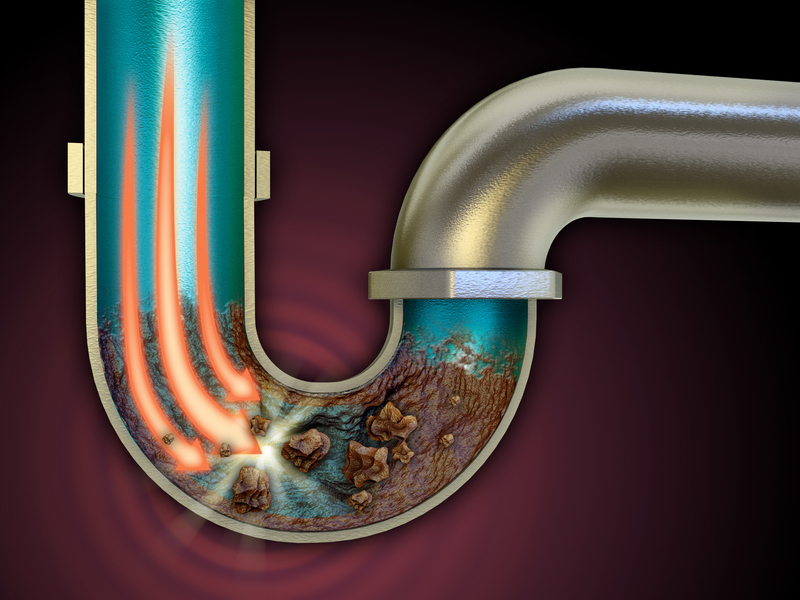Say Farewell to Damp Smell with These Tactics
Posted on 19/09/2025
Say Farewell to Damp Smell with These Tactics
Damp smells are some of the most persistent and unwelcome odors that can invade our homes, offices, or anywhere excess moisture finds a way in. If you've ever walked into a room and been greeted by a musty, earthy scent, you're not alone. Damp smells, or what many refer to as "mildew odor," are a common nuisance across many households. But the good news is: you don't have to live with it!
This comprehensive guide will walk you through proven strategies and expert tactics to eliminate damp smells for good. Whether you're combating a musty basement, a smelly closet, or want to protect your entire home from the grip of mold and mildew, you'll find actionable advice here. Say goodbye to damp odors, once and for all!
Understanding Damp Smells: What Causes Them?
Before taking action, it's essential to understand the root cause of that unmistakable musty scent. Damp odors arise primarily from two sources:
- Excess moisture: High humidity, leaks, and poor ventilation create the ideal conditions for dampness.
- Mold and mildew growth: Fungi thrive in damp environments, releasing spores and volatile organic compounds (VOCs) that produce a distinct smell.
Typical areas prone to damp smells include:
- Basements and cellars
- Bathrooms and laundry rooms
- Closets and wardrobes
- Kitchens
- Attics and crawl spaces
- Garages and garden sheds
Ignoring damp odors can lead to health risks, including respiratory issues and allergies, as well as property damage. Addressing the source quickly is essential for both your comfort and well-being.

Why You Should Not Ignore Musty Rooms
Many people get used to the subtle scents around their homes, but persistent damp smells should never be ignored. Here's why:
- Health hazards: Mold spores can exacerbate asthma, allergies, and respiratory conditions.
- Structural damage: Prolonged moisture can rot wood, damage drywall, and undermine your home's foundation.
- Pest attraction: Damp environments attract insects and rodents.
- Unpleasant living conditions: Musty odors can be embarrassing and lower your quality of life.
- Resale value: Persistent damp smells can make it difficult to sell your property.
Taking action against damp mustiness is crucial for maintaining a healthy, comfortable, and valuable living environment.
Effective Tactics to Eliminate Damp Smell
You don't have to mask the odor with air fresheners. The best way to banish that damp smell is to tackle its root causes and neutralize lingering scents. Here are tried-and-tested tactics:
1. Locate and Fix the Moisture Source
Repair leaks: Check for plumbing leaks under sinks, around toilets, behind washing machines, and in basements. Even small drips can contribute to persistent dampness.
Inspect roofs and windows: Ensure there are no leaks from damaged roofing, windows, or flashing.
Seal cracks and gaps: Pay special attention to areas where water can enter, like foundation cracks and poorly sealed doors.
2. Improve Ventilation
Stale, humid air enables mold to thrive. Boosting airflow in your home is key to keeping it dry:
- Open windows and doors: Allow fresh air to circulate regularly.
- Install exhaust fans: Use in bathrooms, kitchens, and laundry rooms to reduce humidity.
- Use ceiling or standing fans: They'll keep air moving, discouraging mold growth.
Consider adding air vents or a whole-house ventilation system if your home frequently feels stuffy or damp.
3. Control Humidity Levels
- Maintain humidity below 60%: Mold and mildew struggle to grow at lower humidity levels.
- Buy a hygrometer: A simple device to monitor indoor humidity.
- Deploy dehumidifiers: A must-have in basements, bathrooms, and other moisture-prone areas.
Pro tip: Regularly empty and clean dehumidifier tanks to prevent bacteria and mold buildup.
4. Clean and Disinfect Affected Surfaces
Once moisture is under control, the next step is to tackle the root of the odor. Mold and mildew can cling to surfaces and fabrics long after the initial moisture has dried:
- Scrub hard surfaces: Use a solution of 1 part vinegar to 4 parts water, or a non-toxic commercial mold remover on tiles, concrete, and wood.
- Clean soft furnishings: Wash curtains, cushion covers, and other fabrics in hot water and let them dry completely outdoors in sunlight.
- Disinfect hidden spots: Don't forget under sinks, behind appliances, and in closet corners.
For severe infestations, consider consulting a professional mold remediation expert.
5. Use Natural Odor Absorbers
Once you've addressed the root causes, natural odor absorbers can work wonders to remove any lingering damp smell from the air:
- Baking soda: Place open boxes or bowls in damp areas -- it absorbs moisture and neutralizes odors.
- Charcoal: Activated charcoal bags do an excellent job of trapping and eliminating odors.
- White vinegar: Set out small bowls in musty rooms and replace every few days.
- Dry coffee grounds: Fill stockings or socks and hang them to absorb smells.
These natural methods are safe, eco-friendly, and cost-effective ways to say farewell to damp odors.
6. Harness the Power of Sunlight
Sunshine is a powerful natural disinfectant and deodorizer. Whenever possible, air out your home and textiles in direct sunlight. Hang rugs, cushions, and bedding outdoors to let UV rays kill mold spores and remove that stubborn musty smell.
7. Deep Clean Carpets and Upholstery
Carpets and soft furnishings often harbor hidden mold and mildew, especially if they've been damp or exposed to spills. Deep clean these materials using:
- Steam cleaning (great for carpets and sofas)
- Professional carpet cleaning services
- DIY mixture of vinegar and water for spot-cleaning
Remember to let everything dry thoroughly to prevent further mold growth.
8. Prevent Future Damp and Musty Odors
Once you've conquered the current problem, it's important to keep musty odors from returning:
- Use moisture absorbers in closets and storage spaces
- Regularly check for signs of leaks or condensation
- Maintain a routine cleaning schedule for all rooms
- Store items in airtight containers, especially in basements and attics
- Consider waterproofing basement walls and floors
Bonus: Quick Tips to Remove Damp Smell from Specific Locations
Different rooms require specific solutions:
Bathroom
- Run the exhaust fan during and after showers
- Wipe down tiled surfaces regularly
- Launder towels frequently; don't let them pile up damp
Closet
- Use silica gel packets or moisture absorbers
- Don't crowd clothing, as air needs to circulate
- Wash items thoroughly before storing
Basement
- Install a dehumidifier and keep it running in humid weather
- Check sump pumps and foundation for leaks
- Store items off the ground on shelves
Car Interior
- Keep floor mats and upholstery dry
- Sprinkle baking soda on seats and carpets, then vacuum
- Use charcoal bags to absorb odors

Frequently Asked Questions (FAQs) on Damp Odors
-
Why does my home still smell musty even after cleaning?
Odor can persist if moisture and mold are present beneath floorboards, behind walls, or in insulation. Ensure all affected areas are dry and cleaned. -
Are air fresheners effective for removing damp smells?
No! Air fresheners only mask the odor; real solutions address moisture and mold at their source. -
Can plants help reduce humidity?
Some houseplants can help absorb moisture, but they can also contribute to humidity if overwatered. Balance is key. -
What's the best dehumidifier for homes?
Choose an Energy Star-rated dehumidifier sized appropriately for the room or space you need to dry. For basements, larger-capacity models work best. -
How can I prevent damp odors when away from home?
Keep windows slightly open (if secure), use timers on dehumidifiers, and ask a neighbor to check for signs of leaks when you're gone.
The Bottom Line: Enjoy a Fresh, Odor-Free Home
Musty, damp smells don't have to be a permanent fixture in your life. With smart tactics, a proactive approach, and a little diligence, you can create a fresh, comfortable, and healthy living environment for you and your family.
- Identify and address the source of moisture
- Thoroughly clean affected areas
- Monitor and control humidity
- Use natural odor absorbers
- Maintain regular cleaning habits
It's time to say farewell to damp smell with these tactics and reclaim the freshness of your home. Get started today and enjoy the benefits of a truly fresh, inviting space!





